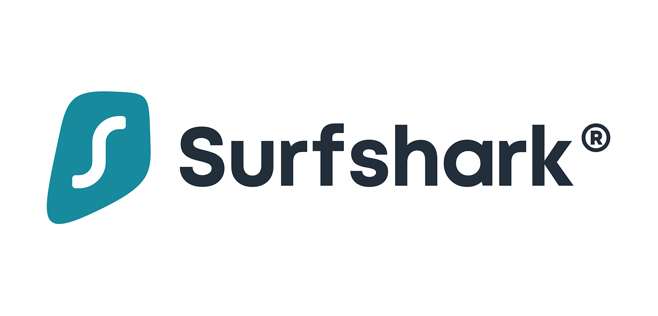Published 11 Apr 2025
Best VPNs for Crypto Trading: Stop DDoS Attacks Before They Start

Hackers constantly target cryptocurrency transactions to steal sensitive financial information. Security risks like Distributed Denial-of-Service (DDoS) attacks can stop trading activities and cause huge losses. That's why the best VPNs are now essential tools for crypto trading security.
A VPN gives crypto traders multiple layers of protection. Your sensitive data stays safe through encryption, which really matters when you're using public WiFi networks. The VPN masks your IP address to keep you anonymous while trading. On top of that, it comes with special features like Two-Factor Authentication (2FA) that make it a lot harder for attackers to gain unauthorized access.
This piece gets into how VPN services protect crypto traders from DDoS attacks and other security threats. You'll learn about choosing the right solution that fits your trading needs.

Understanding DDoS Attacks in Cryptocurrency Trading
DDoS attacks have become a serious security threat in the cryptocurrency ecosystem. These attacks don't try to steal assets directly. They target the infrastructure that makes trading possible.
How DDoS Attacks Target Crypto Traders
DDoS attacks flood cryptocurrency platforms with internet traffic, making them unavailable to real users. Industry reports show cryptocurrency exchanges are the prime targets for these attacks. 73% of all Bitcoin sites faced DDoS attacks in just one quarter. This makes crypto one of the most targeted sectors despite having a small web presence. Attackers have different reasons for these attacks. Some people short the native tokens of targeted blockchains and wait for prices to drop after service disruptions. Others try to stop users from making profitable trades or block liquidations on DeFi lending protocols. Some attackers just want to show off their technical skills or hurt a platform's reputation.
Recent events show how big these threats can be. Attackers hit one cryptocurrency platform with 15.3 million requests per second in one of the biggest DDoS attacks ever seen. The Manta Pacific blockchain got hit with 500 million requests in just four hours during their token launch.
The Financial Impact of Trading Downtime
DDoS attacks create huge economic problems for crypto trading platforms. The Ponemon Institute's research shows one minute of downtime costs about $22,000 on average. These attacks last around 54 minutes, which means each incident can cost $1.18 million.
Crypto traders feel these service disruptions the most. They can't make time-sensitive trades when exchanges go offline during important market moves. This means missed profits or bigger losses. Big DDoS attacks against major exchanges can even change cryptocurrency prices worldwide.
The bigger picture looks even worse. Large businesses lose about $400 billion each year from IT infrastructure downtime caused by DDoS attacks. This number keeps growing as attackers come up with smarter methods.
Common DDoS Attack Vectors in Crypto Exchanges
Attackers take a closer look at several technical approaches to target cryptocurrency platforms:
- SSDP Amplification — Uses Universal Plug and Play protocols to make attack traffic bigger
- NTP Amplification — Uses Network Time Protocol servers to multiply attack data volume
- HTTPS Request Floods — Takes more computing power than regular HTTP attacks and puts more pressure on servers
Many recent attacks come from data centers instead of home networks. This shows a change in attack strategies. One notable case involved attackers who used compromised servers from cloud hosting providers. Many ran Java-based applications with security holes. Compromised MikroTik routers played a part in several attacks too.
These attacks come from all over the world. One documented attack came from 112 countries. Indonesia, Russia, Brazil, India, Colombia, and the United States were the main sources.
Crypto traders who want to protect themselves should use a reliable VPN service. The best VPNs for crypto trading hide IP addresses and encrypt connections. This helps prevent direct targeting and reduces certain types of DDoS attacks.

Essential VPN Features for Crypto Trading Security
Crypto traders need VPNs with strong security features to protect themselves from sophisticated cyber threats. These VPN features shield traders from common risks like DDoS attacks and data theft during transactions.
Military-Grade Encryption Protocols
Strong encryption forms the backbone of VPN security for crypto trading. The best crypto trading VPNs use AES-256 encryption — the gold standard that military organizations worldwide trust. Even the most powerful computers would take billions of years to crack this encryption level.
Different protocols balance security and speed:
- OpenVPN: Focuses on strong encryption, perfect for traders with large crypto assets
- WireGuard: Delivers quick speeds without compromising security, great for high-volume traders who need fast execution
- IKEv2: Keeps connections stable during network changes, crucial for mobile crypto trading
Some VPNs go beyond standard encryption. NordVPN's Threat Protection Pro blocks harmful websites and phishing links that target crypto traders through Telegram, Reddit, and social platforms. This extra layer stops users from clicking compromised links that could lead to wallet theft.
Kill Switch Functionality for Trade Protection
A well-configured kill switch proves vital for crypto traders. This feature cuts off internet access if the VPN drops, which stops any exposure of sensitive trading data. Traders risk exposing their wallet addresses and trade details to attackers during disconnections. Kill switches work in two ways:
- System-level kill switches block all internet traffic when VPN protection fails, offering complete security but might stop other activities
- Application-level kill switches let traders choose which crypto apps need maximum protection while keeping other services running
Traders who skip this feature risk exposing their real IP address and location during VPN drops. This exposure makes them easy targets for attacks aimed at high-value crypto accounts.
Multi-hop VPN Connections
Multi-hop connections (also called double VPN) send traffic through multiple servers and add extra encryption layers. Each server removes one encryption layer, which makes tracking user activities much harder.
Crypto traders get several benefits:
- The system stops correlation attacks that could trace trading activity back to users.
- Data stays secure even if attackers breach the first server thanks to the second encryption layer.
- This setup also makes it tough for attackers to spot trading patterns.
DNS Leak Prevention Systems
DNS leaks create hidden risks for crypto traders. These leaks happen when DNS requests bypass VPN protection, which shows internet providers what websites users visit — including crypto exchanges and trading platforms.
DNS leaks can expose:
- Which trading platforms traders use and how often
- Their favorite exchanges and visit frequency
- Transaction timing details that could identify users
Top crypto trading VPNs stop DNS leaks by sending all queries through secure servers instead of ISP servers. They also use private DNS on every server and protect against IPv6 leaks.
Traders should test for DNS leaks regularly since these issues can break through strong security. Sites like DNSleaktest.com help verify if VPNs block this type of data exposure.

Top 3 VPNs for Preventing Crypto Trading DDoS Attacks
Our evaluation of dozens of VPN services revealed three standout providers that excel at protecting cryptocurrency traders from DDoS attacks. These services come with special features that tackle security challenges unique to crypto trading.

NordVPN: Advanced DDoS Protection Analysis
NordVPN leads the pack for crypto traders who need solid DDoS protection. The service runs more than 7,100 servers in 118+ countries, creating a network that effectively scatters and reduces attack traffic. Your trading data stays secure with military-grade AES-256-CBC encryption.
The service's Threat Protection feature makes NordVPN special. It blocks malicious websites and phishing links that target crypto traders on social platforms. This protection stops you from clicking compromised links that could steal your credentials. Recent tests show impressive results — NordVPN kept 90% of download speeds and 84% of upload speeds. These numbers matter when you need quick trading responses.
NordVPN operates from Panama, where no data retention laws exist. The company proves its trustworthiness through regular independent audits of its no-logs policy, with five completed by 2024.

ExpressVPN: Speed vs Security for High-Volume Trading
ExpressVPN strikes the right balance between security and speed, which makes it perfect for high-volume trading. Recent tests show the service kept 77% of download speeds and 81% of upload speeds. These numbers mean reliable performance when you monitor markets in real-time.
The company's Lightway protocol helps keep connections stable — exactly what you need during crucial trading moments. The Network Lock feature acts as a kill switch that blocks internet traffic if your VPN drops. This protection keeps your trading data safe during brief disconnections.
Security remains the top priority. ExpressVPN uses AES-256 encryption and runs RAM-only servers that clear all data after each reboot. The company proved its privacy promises during an actual server seizure — authorities found no user data.

Surfshark: Multi-Device Protection for Diverse Trading Setups
Surfshark stands out by letting you connect unlimited devices at once. You can protect your desktop, mobile devices, and tablets with one subscription. This flexibility helps traders who watch markets on multiple platforms.
The service offers great anonymity through MultiHop (Double VPN), which sends your traffic through two servers. Tests showed Surfshark kept 86% of original download speeds with WireGuard, though upload speeds dropped to 64%.
Surfshark's CleanWeb blocks ads, trackers, and malicious websites that could compromise your trading security. The Alternative ID feature generates different personas and email addresses. This tool helps you register on crypto platforms that don't need formal verification, adding another layer of identity protection.
These three providers set the standard for DDoS protection in crypto trading. Each offers unique benefits that match different trading needs and security priorities.

Setting Up Your VPN for Maximum Crypto Trading Protection
A secure VPN setup is the life-blood of cryptocurrency trading operations. The time you spend on proper VPN configuration will reduce your vulnerability to DDoS attacks and other threats.
Optimal Server Selection for Trading Platforms
Your choice of server location will affect your trading performance and security. Crypto traders need servers close to their exchange's data centers to keep latency low. High latency can lead to slippage and missed trades that cost you money.
These server locations work best for trading:
- London/Frankfurt — For European exchanges and brokers
- New York — Excellent for North American trading platforms
- Tokyo/Singapore/Hong Kong — Optimal for Asian markets
- Sydney — Best for Australian exchanges
Your trade execution speed improves when you pick servers near your chosen exchange. Look beyond just location and find servers that are optimized for trading with stable connections.
VPN Split Tunneling for Trading Applications
Split tunneling lets you route only trading apps through the VPN while other software connects directly. This setup gives you several benefits:
- Lower bandwidth usage
- Less latency for non-trading apps
- Better security for sensitive financial transactions
You should set up critical apps like wallet software and exchange platforms to always use the encrypted VPN tunnel. This approach ensures your trading traffic gets maximum protection.
Testing Your VPN's DDoS Resistance
You need to verify your VPN's protection against DDoS attacks before real trading begins. First, check if your IP address changes after connecting to the VPN. Then test the kill switch by disrupting your VPN connection to see if it automatically cuts internet access. Regular IP and DNS leak tests during trading sessions will help verify your connection's security. You should also test how your VPN handles high-traffic situations to assess its performance under pressure.

Using VPN for Crypto Trading: Legal and Compliance Considerations
VPN usage rules for crypto trading differ substantially between platforms and countries. Traders who want better security against DDoS attacks need to watch out for several pitfalls.
Exchange Terms of Service and VPN Usage
Crypto exchanges don't allow users to bypass geo-restrictions with VPNs in their terms of service. Breaking these rules can lead to serious problems:
- Your account could be frozen or terminated
- You might lose all your deposited funds
- You won't be able to trade during key market moves
Binance's rules, to name just one example, stop users from accessing the platform from restricted countries through VPNs. Coinbase has strict Know Your Customer (KYC) rules and flags any suspicious VPN activity. These platforms might freeze your assets or block your account if they catch you using VPNs to get around restrictions.
Regulatory Compliance Across Different Jurisdictions
VPN rules for crypto trading look different in each country. The U.S. and Canada let you use VPNs with minimal risk. China and Russia, on the other hand, have tough rules about VPNs and crypto trading, making it risky for traders there.
Yes, it is worth noting that all but one of these countries face U.S. sanctions: Russia, Iran, North Korea, Syria, Cuba, and Russian-occupied Ukraine. Trading from these places via VPN could break international sanctions. Traders in unrestricted areas should know the IRS cares more about income reporting than how you make trades.
KYC Verification While You Retain Control
VPNs boost privacy but can't help you skip KYC checks. U.S. taxpayers must report their worldwide income, VPN or no VPN.
VPNs don't deal very well with anti-money laundering rules because they hide users' real locations. Exchanges track IP addresses to spot suspicious behavior, like one person running multiple accounts for wash trading.
We learned that VPNs protect you from DDoS attacks, but they won't get you out of following regulations or exchange rules.

Conclusion
VPNs have become more than just privacy tools — they’re a crucial part of any crypto trader’s security strategy. With DDoS attacks growing stronger and more frequent, relying on exchange-level protection alone simply isn’t enough.
Choosing the right VPN gives traders an extra shield against service disruptions, data leaks, and potential financial losses. Whether you’re managing large portfolios or making quick trades on the go, features like kill switches, DNS leak prevention, and multi-hop connections add valuable layers of defense.
But remember: VPNs are powerful tools, not magic solutions. They protect your connection, not your compliance. Always respect platform rules, understand legal restrictions in your region, and stay transparent with reporting obligations.
In the fast-paced world of crypto trading, being prepared is everything. And with a well-configured VPN, you give yourself the best possible chance to trade securely — no matter what’s happening on the network.
Read More




 Get RateX Pro
Get RateX Pro

 06 Jun 2024
06 Jun 2024
